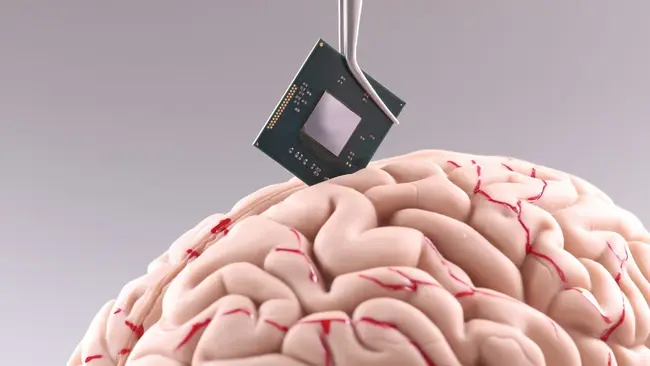Elon Musk’s brain-implant company Neuralink has been given the green light by the US Food and Drug Administration to kick off its first trials on humans.
In a Tweet on Thursday, the research firm said it had won the FDAs approval “to launch our first-inhuman clinical study,” representing “an important first step that will one day allow our technology to help many people.”
It did not elaborate on what the goal of the study would be, nor when trials would start, but did say that it was not yet looking for participants.
An earlier bid by Neuralink to win FDA approval was rejected on safety grounds, with experts concerned about the lithium batteries in the devices, as well the possibility of the implant’s wires migrating within the brain and the challenge of safely extracting the device without damaging brain tissue.
Musk, who last year claimed the microchips were so safe we would be happy to use his own children as guinea pigs, hopes to the devices could be used to treat conditions such as paralysis and blindness, autism and paralysis.
The billionaire also believes the technology could prevent the threat of humans being displaced by AI as AI systems could be integrated into the devices.
Congratulations Neuralink team! https://t.co/AWZGf33UDr
— Elon Musk (@elonmusk) May 26, 2023
Swiss researchers showed the potential for the technology earlier this week. A paralysed man from the Netherlands was able to walk simply by thinking about it – thanks to a system of Neuralink-like implants that wirelessly transmit his thoughts to his legs and feet.

Regulatory nightmare
The FDA’s approval of Neuralink is undoubtedly a relief for Musk and his staff, but the firm has had several negative interactions with federal regulators as of late.
The FDA previously rejected an early 2022 Neuralink application for human trials, as reported by Reuters, apparently outlining “dozens of issues” the company needed to address.
Musk has insisted Neuralink would begin human trials at east four at least four times since 2019, but the company only applied for FDA approval early last year.
In November last year, the billionaire said he was confident that Neuralink’s device was “ready for humans”, adding that the timing for beginning human trials was a “function of working through the FDA approval process”.
“We want to be extremely careful and certain that it will work well before putting a device into a human but we’ve submitted I think most of our paperwork to the FDA and probably in about six months we should be able to upload Neuralink in a human,” the Twitter and Tesla chief said.
Animal killer
Neuelink has been the subject of a number of federal investigations. Last year, the USDA’s inspector general began investigating the firm at the request of a federal prosecutor over potential violations of the Animal Welfare Act, which governs how researchers treat and test certain types of animals.
The company has killed about 1,500 animals, including more than 280 sheep, pigs and monkeys, following experiments since 2018, Reuters previously reported.
Neuralink also killed and maimed it’s animal experimental subjects at a truly alarming rate in experiments that seem to be unburdened by ethics oversight, but sure, you go ahead and have it implanted, MuskAcolytes https://t.co/vxRbK2Fyzw
— Aparna Nair (@DisabilityStor1) May 26, 2023
It has also been accused of violating transportation rules by shipping implants contaminated with monkey tissue and pathogens.
Typically, when the FDA rejects an application for clinical trials, it is willing to communicate in detail why it found the plan for trials insufficient.
It's a positive sign for Neuralink that the company was able to address the concerns of federal regulators in a relatively short period.
But when having earlier bids to start clinical trials rejected by the FDA is the least of your problems, there is definitely calls for concern.




Comments ( 0 )